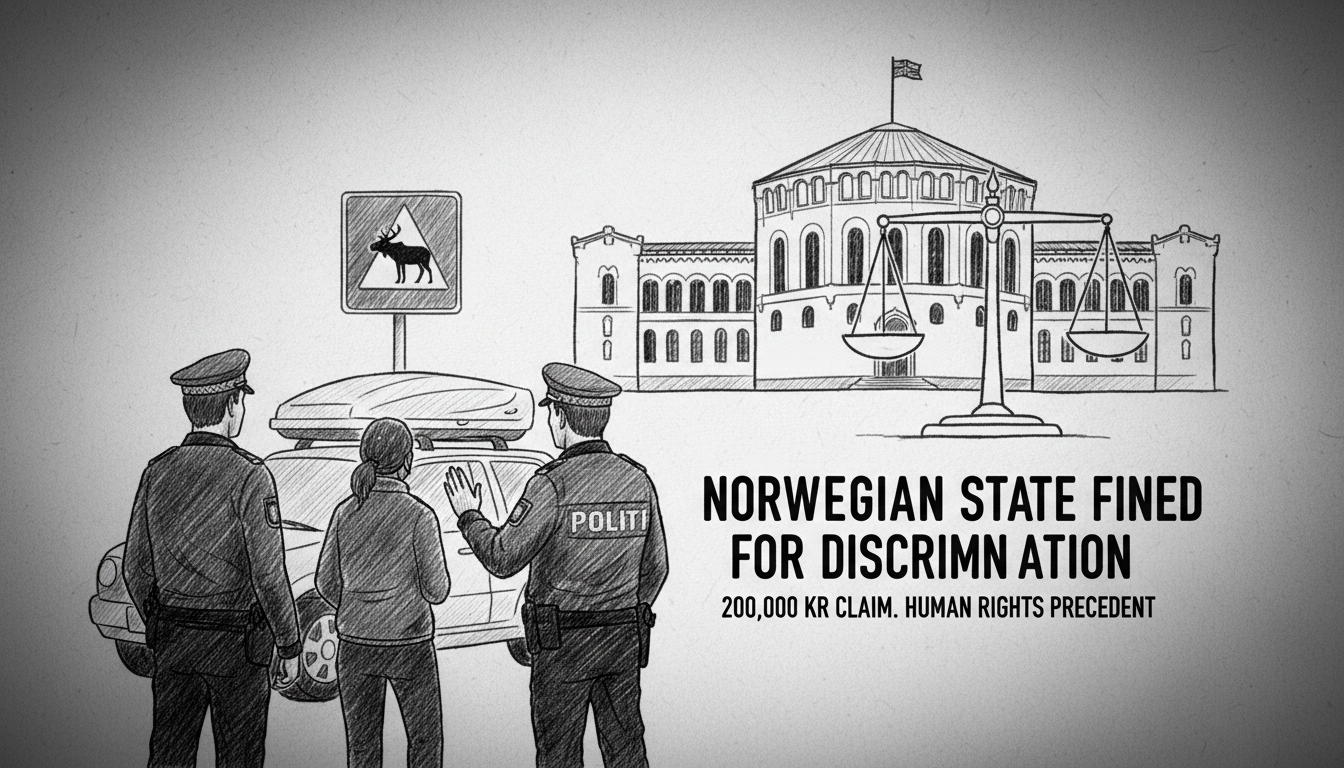A Norwegian court has ordered the state to pay 200,000 kroner in compensation to a man who experienced prolonged ethnic discrimination through repeated police traffic stops. The Oslo District Court ruled that authorities violated the European Convention on Human Rights in their treatment of Awon Amidu.
The case originated from Amidu's experiences with Trøndelag police between 2015 and 2020. Officers stopped him ten times during traffic controls. Norway's Discrimination Tribunal concluded in April 2021 that several of these stops constituted ethnic profiling.
The court emphasized that police committed the discrimination, the scale was substantial, and the violations persisted over multiple years. This ruling represents a significant challenge to Norway's reputation as an egalitarian society. The country often prides itself on progressive values, yet this case reveals systemic issues within law enforcement.
Government attorney Kaija Bjelland confirmed the state is considering an appeal. Both parties agree human rights violations occurred, but the state argued the compensation claim had expired under statute of limitations provisions.
The court determined that standard limitation laws don't properly apply to human rights compensation cases. This legal interpretation could set an important precedent for future discrimination claims against Norwegian authorities.
Ethnic profiling during police controls remains a contentious issue across Scandinavia. Norway's ombudsman has previously documented similar patterns affecting minority communities. The case highlights the gap between Norway's egalitarian self-image and the lived experiences of some residents.
International human rights organizations have long criticized Nordic countries for downplaying racial discrimination issues. This ruling forces a public conversation about institutional bias in societies that often claim to be colorblind.
What consequences will this judgment have for police practices? Law enforcement agencies now face pressure to implement better anti-discrimination training and monitoring systems. The ruling also empowers other victims of profiling to seek legal recourse.
The government's appeal consideration suggests authorities may resist changing established procedures. This legal battle could continue through higher courts, potentially reaching the European level.
For international observers, the case demonstrates that even progressive Nordic nations struggle with systemic discrimination. The outcome will influence how Scandinavian countries address racial equity in public services moving forward.

